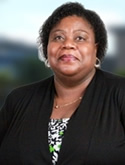NSU Newsroom
SharkBytes
Horizons
This version of NSU News has been archived as of February 28, 2019. To search through archived articles, visit nova.edu/search. To access the new version of NSU News, visit news.nova.edu.
This version of SharkBytes has been archived as of February 28, 2019. To search through archived articles, visit nova.edu/search. To access the new version of SharkBytes, visit sharkbytes.nova.edu.
CAHSS to Host Intellectual Conversations on “Truth to Power,” Feb. 11
NSU’s College of Arts, Humanities, and Social Sciences (CAHSS) will again host the Intellectual Conversations on February 11, 2016. This is the second in the winter series titled, “Truth and Power.” This event will feature Eileen Smith-Cavros, Ph.D., and Joyce Avotri-Wuaku, Ph.D., faculty in the Department of Conflict Resolution Studies. They will discuss “Healthcare, Negotiation, and Power in Agate, Ghana: ‘All I Need is Help to do Well.’ ”
The event, which is free and open to the public, will be held from noon – 1 p.m. Thursday, February 11, 2016, in the Cotilla Gallery on the Second Floor of the Alvin Sherman Library on NSU’s Fort Lauderdale-Davie Campus.
This conversation will focus on research on illness and ways of negotiating health treatment from sociological and anthropological perspectives using qualitative methods in Agate, Ghana. Researchers interviewed 29 men and women over 50 years of age about whether and how they treated recent illnesses and with what results.
Several themes arose from the interviews. Many critical obstacles to successful health treatment existed. However, participants creatively used various methods to try to negotiate a flawed healthcare system as best as they could. Participants blended religious/spiritual approaches including herbs, fasting, and prayer with western medicines, increased dependence on their social networks, and used various components of Ghana’s National Health Insurance Scheme (NHIS) to varying degrees.

